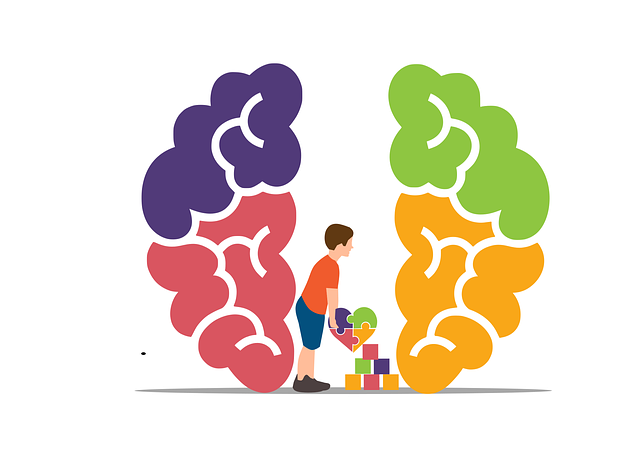Lafayette Trauma Therapy (LTT) is a leading provider in mental health care, focusing on comprehensive risk assessment and mitigation through evidence-based practices. Their approach goes beyond identifying hazards by evaluating psychological, social, and environmental factors to predict and manage risks related to trauma and mental health challenges. LTT's innovative treatment strategies, including the Mental Wellness Podcast Series, prioritize client safety and personalized care. Therapists use self-care strategies and open communication to prevent burnout, while crisis intervention guidance enhances their ability to deliver quality care. By fostering safe spaces and promoting emotional well-being, LTT empowers clients and therapists alike, contributing to successful outcomes in trauma therapy and overall mental wellness.
Mental health professionals are increasingly navigating complex risks within their clinical settings. This article explores the vital practice of risk assessment at Lafayette Trauma Therapy, a leading facility dedicated to understanding and managing mental health hazards. We delve into identifying potential vulnerabilities, implementing proactive mitigation strategies, and presenting case studies that highlight effective risk management. By examining these key aspects, we aim to enhance safety in mental health care environments, drawing insights from Lafayette Trauma Therapy’s proven approaches.
- Understanding Risk Assessment: A Cornerstone for Mental Health Practice at Lafayette Trauma Therapy
- Identifying Potential Hazards and Vulnerabilities in Clinical Settings
- Strategies for Mitigating Risks: Proactive Approaches for Mental Health Professionals
- Case Studies: Lessons Learned from Effective Risk Management in Lafayette Trauma Therapy
Understanding Risk Assessment: A Cornerstone for Mental Health Practice at Lafayette Trauma Therapy

At Lafayette Trauma Therapy, understanding risk assessment is not just a requirement but a cornerstone for mental health practice. It’s an integral part of ensuring client safety and effective therapy delivery, grounded in the core principles of Mind Over Matter Principles. Our approach to risk assessment goes beyond identifying potential hazards; it involves meticulously evaluating clients’ psychological, social, and environmental factors to predict and mitigate risks associated with trauma and mental health challenges.
Through the Mental Wellness Podcast Series Production, we continually explore innovative Stress Reduction Methods to enhance our risk assessment strategies. By staying at the forefront of evidence-based practices, Lafayette Trauma Therapy ensures that every client receives personalized care tailored to their unique needs. Our commitment to thorough risk assessment translates into a safer and more supportive environment for clients on their journey towards mental wellness.
Identifying Potential Hazards and Vulnerabilities in Clinical Settings

In clinical settings, mental health professionals at Lafayette Trauma Therapy constantly navigate a landscape where potential hazards and vulnerabilities can arise from various sources. These may include sensitive patient information, demanding work schedules, and high-stress environments. Identifying and mitigating these risks is paramount for maintaining a safe and therapeutic atmosphere.
One key area of focus involves safeguarding against burnout, which can significantly impact professionals’ mental health and, consequently, their ability to provide effective care. This often requires cultivating robust self-esteem improvement strategies and ensuring open communication among team members. Additionally, crisis intervention guidance plays a crucial role in managing unexpected situations, enabling practitioners to respond calmly and efficiently.
Strategies for Mitigating Risks: Proactive Approaches for Mental Health Professionals

Mental health professionals are often on the front line when it comes to managing and treating individuals dealing with various mental health issues. However, this role also exposes them to unique risks that can impact their own emotional well-being. Implementing proactive strategies for risk mitigation is essential for maintaining a healthy work environment and ensuring optimal patient care. One such approach involves integrating Lafayette Trauma Therapy techniques into daily practice, which helps professionals manage trauma-related symptoms and build resilience among clients.
By adopting these methods, mental health practitioners can foster safe spaces where individuals feel empowered to share their experiences. This not only facilitates better understanding of complex cases but also serves as a powerful tool for depression prevention and mood management. Additionally, incorporating emotional well-being promotion techniques into therapy sessions allows professionals to model healthy coping mechanisms, ultimately contributing to the overall success of treatment and fostering a more supportive therapeutic environment.
Case Studies: Lessons Learned from Effective Risk Management in Lafayette Trauma Therapy

Lafayette Trauma Therapy has been at the forefront of mental health care, providing innovative treatment strategies while emphasizing robust risk management practices. Their case studies offer invaluable insights into effective risk assessment and mitigation for professionals in this field. Through meticulous analysis of past interventions, therapists have honed their approach to anticipate potential risks associated with various therapeutic modalities.
By examining individual client histories and leveraging data-driven insights, Lafayette Trauma Therapy has successfully navigated complex cases. Their strategies focus on self-esteem improvement and mental illness stigma reduction efforts, addressing underlying issues that contribute to heightened risk. This proactive approach ensures a safe environment for both clients and therapists, fostering successful outcomes in trauma therapy—a critical aspect of comprehensive mental health care.
Mental health professionals play a crucial role in helping individuals navigate complex emotional landscapes, making risk assessment an indispensable tool for ensuring both patient safety and practitioner well-being. As demonstrated by the case studies from Lafayette Trauma Therapy, proactive risk management strategies can create a more secure environment for healing. By identifying potential hazards, understanding vulnerabilities, and implementing effective mitigation tactics, professionals can enhance their practice’s resilience and foster a culture of safety within the clinical setting. Through continuous learning and adaptation, as illustrated by Lafayette Trauma Therapy’s approach, mental health providers can better equip themselves to handle risks and deliver high-quality care.














